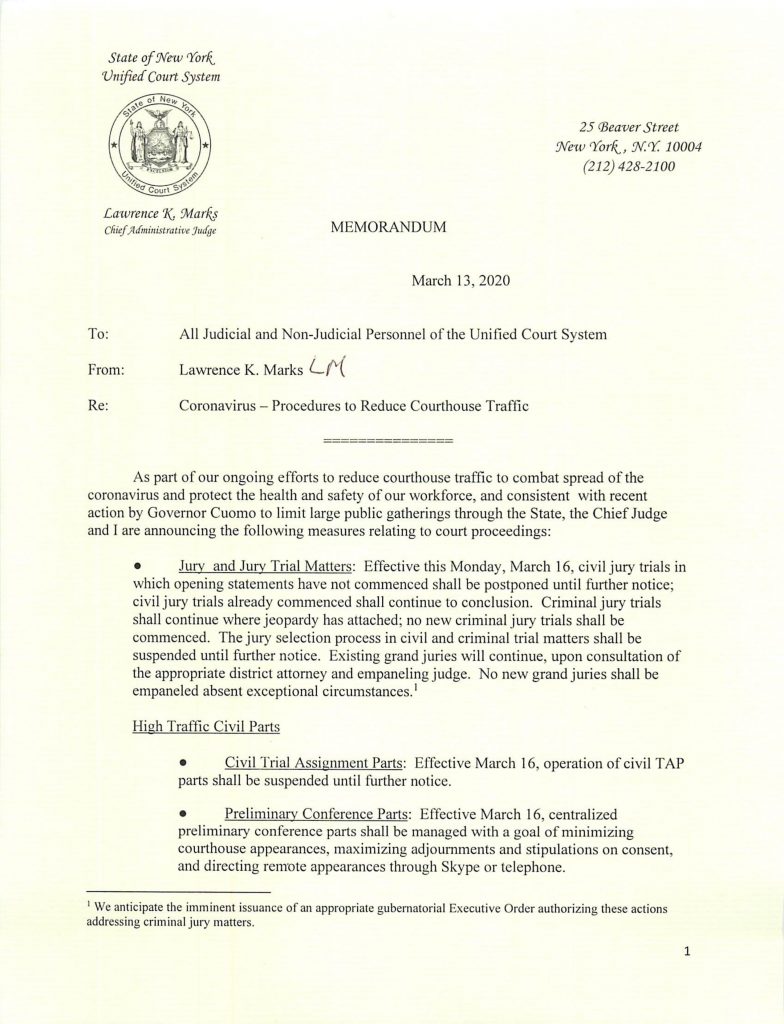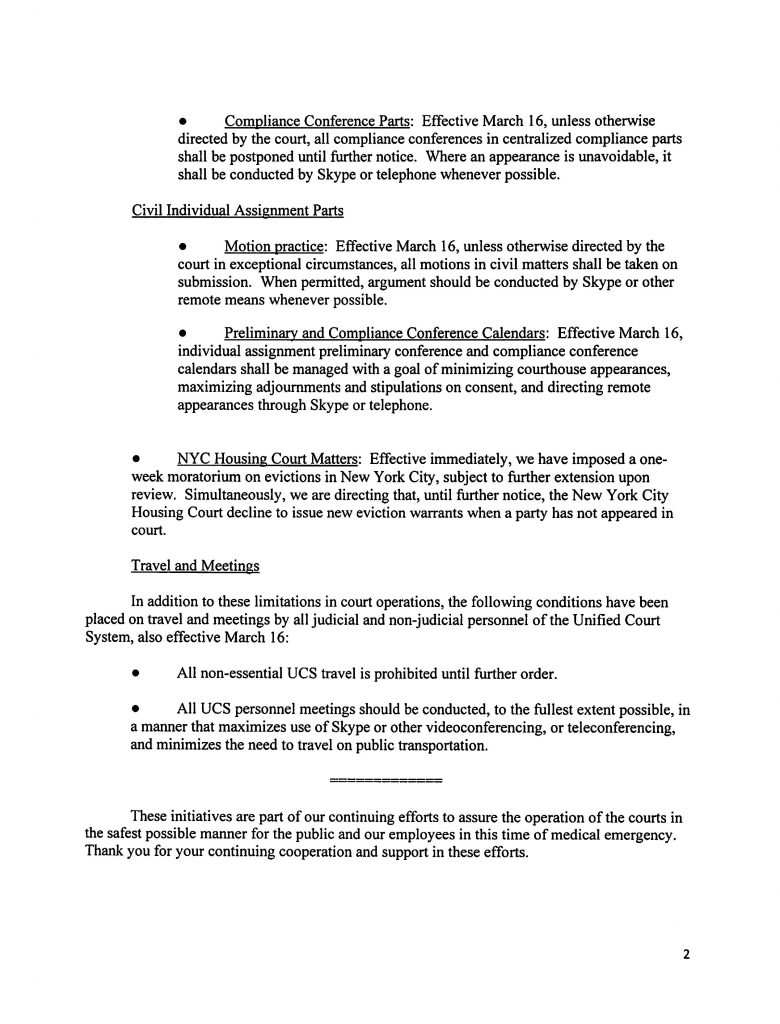A week ago, there was a statewide rollout of virtual court operations via Skype and teleconferencing for essential and emergency proceedings amid the COVID-19 pandemic. On April 13, 2020, Chief Judge Janet DiFiore and Chief Administrative Judge Lawrence K. Marks announced that this temporary “virtual court” model is being expanded beyond the limited category of essential and emergency matters.
Over the past two weeks, the New York State Courts’ trial court efforts have centered on arraignments, bail applications, orders of protection and other essential and emergency criminal, family and civil matters. Following a successful transition to a virtual court system for the handling of essential and emergency matters statewide, the court system is extending its focus to include pending tort, asbestos, commercial, matrimonial, trusts and estates, felony, family and other cases, which make up the vast bulk of trial court caseloads. The existing ban on the filing of new “non-essential” matters will remain in effect.
For more information, please visit: https://www.nycourts.gov/LegacyPDFS/press/PDFs/PR20_15virtualcourtstortsetc.pdf



